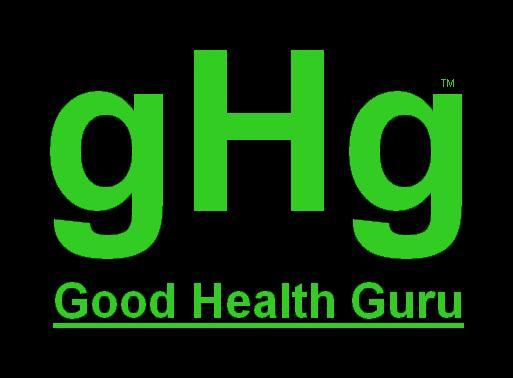At A Glance:

- Psychological or physical
- Characterized by failure to perform in the bedroom and/or general lack of desire
- Anxiety, stress / overwork (fatigue), and poor blood flow are the main issues
- Can be effectively treated with diet and lifestyle modification, herbs, amino acids, drugs, mechanical aids, and counseling
[ expand/collapse all ]
Is this you?
"I thought I was good-to-go. The mood was all set. I was in bed with my partner, and then it happened! I... just couldn't get it going.
"I don't know what was wrong with me! Talk about embarrassing! I've never had trouble with sex before, but now I'm afraid! What if I try again, and it doesn't work? What if it never works? What if I can't ever have sex again???"

Not a good feeling, right?
But hold on now! Before total panic sets in, it's important to realize there can actually be a number of causes of these symptoms, and in most liklihood this is just a temporary episode of sexual impotence. In men this is most often observed as the difficulty in getting or maintaining an erection. In women it is most often seen in a lack of lubrication along with constriction at the vaginal opening.
The good news is, it happens to all of us at some point in life. You aren't alone. The bad news is, that's still not a very comforting thought when it happens to us, especially since sexual satisfaction is an important part of life. But really, our bodies are just trying to tell us something! Whether it is a physical issue or an emotional one, we have to figure the problem out since prolongued sexual frustration can eventually lead to a host of negative effects in our bodies.
What it is:
Sexual dysfunction, often called impotence or frigidity, has many forms, and it is on the rise. In both men and women, achieving an erection or becoming aroused involves the Central Nervous System, the circulatory system, the endocrine (hormonal) system, and the psychological system. When one or more of these components are not functioning properly, loss of sex drive or ability to perform can occur.
Make it Go AWAY!
I can't have sex now?!? Really??? It has come to this?!? Why can't this just go away and I go back to normal??? Aaaargh!!!
OK, so maybe a few people would actually be happier with this scenario, but more likely is that most won't, and the first step toward making it go away is dissatisfaction with our circumstance that leads us to undertake some research so we can get a feel for what is happening.
As it stands, sexual appetite is unique to every individual. Some people like sex daily while others prefer weekly or maybe just a couple of times per month so when an initial sign of trouble appears, it should represent a distinct change from our normal pattern. Nothing changes by accident though. For every effect (change), there is a preceding cause even though the cause may be difficult to see at first. What this means is the specific cause (or causes) which trigger decreasing sex drive in one individual are not necessarily the same specific causes triggering the problem in other individuals. This is, in part, why conventional means struggle to find a quick and simple "cure" for it; there is not simply a single cause. In fact, reading about conventional treatments for diminishing sex drive can be very depressing if we were to believe these were our only options, but luckily, they are not! Unconventional therapies have been used for centuries and are quite advanced in comparison to their conventional counterparts. Working to cure our sexual woes requires a bit of creativity, investigation, experimentation, and education on our parts. Fortunately, there are some guidelines we can follow to start out.
Education: What happens when your sex drive vanishes -
It has never been a good stigma our society applies to many of our "diseases" -- that being a perception of the one-way ticket; "once we have a chronic affliction or disease, we likely will always have that 'chronic disease', and it cannot be cured." It is rather like saying, "once you have brown eyes, you always have brown eyes. You cannot be cured of them." Instead, what if we turn this around and see it as a genetic part of us -- a reaction our bodies are programmed to have to a particular cause? Then what is there to cure??? It's just part of who we are which makes our goal an attempt to stop that reaction.
So, the first thing in understanding sexual frustration lies in recognizing it is a part of who we are and the environment we're in -- it is part of our uniqueness just as our eye and hair colors, the shapes of our mouths, and so on are all part of what make us special and unique. This is a surprisingly good thing because it gives us a chance to learn more about ourselves and grow more skilled as individuals!!! But to gain that skill, we first need to dig a little deeper and examine why we have had difficulties with our sex lives in the first place.
In our present society, there are two particularly likely scenarios: 1) chronic stress or temporary, extreme stress, and 2) physiological toxicity. It can even be a case where both of these are happening simultaneously.
In terms of stress, we have so many interferences in our daily lives from jobs we hate, promotions we seek, bills we need to pay, relationships which might be souring, and so on -- we tend to be on stress overload. When this happens, our bodies are continuously releasing an ample supply of the primary stress hormone, cortisol. The problem for our bodies is, hormones begin with cholesterol but then branch off taking distinct and irreversible paths. If our bodies are producing substantial levels of cortisol (due to stress), then they are corrispondingly NOT producing good levels of sex hormones which, at the very least, decreases sex drive.
In terms of toxicity, the likely scenario is that we build toxins in our bodies from at least two different sources, primarily: 1) the digestion of foods that are really not proper foods for us, and 2) the digestion of harmful additives found in what we eat. These toxins can get deposited in various places throughout our bodies, and this may be accompanied by an increase in arterial plaque which eventually begins to restrict blood flow. When blood flow to the sex organs is reduced, we can end up with sexual impotence. If these toxins continue to accumulate faster than normal channels can eliminate them, we can end up with verious forms of severe physiological impairment such as strokes, heart attacks, and autoimmune conditions.
Unfortunately, the mechanisms driving sexual impotence, much like many other medical conditions, are not yet well understood. The complexities of the human body make it a real challenge to nail down the specifics, but these concepts are quite plausible, and the beauty is, they can be tested by doing three things: removing ourselves from stressful situations, practicing relaxation techniques, and eliminating things from our diets that we should not be eating. When our sex drive returns, we would know we hit on the correct techniques and eliminations.
Treatment: how to stop it -
This process is really something naturopaths have understood for centuries -- that sexual impairment is a physiologically programmed response to something we are doing wrong to ourselves and that the key to stopping our frustrations is to eliminate the triggers. Our bodies need to be brought back into balance with their environments so they can focus fully on healing themselves!
Since specific triggers are different in all of us, this is no simple task, but the process can be made as easy as possible by simply suggesting we begin with exercises in steady breathing and a basic type of fasting. We would eliminate nearly everything but the most benign of foods (only for a little while to start). Once we begin to feel more sexually energized, we know stresses and/or something(s) we are eating are the primary triggers in us. We would continue this until our sex drive is stable again, and then we could gradually begin adding foods back to see what happens.
As these are normally considered harmless foods to everyone, the ones recommended to eat initially are:
- proteins: cod, sardines, walnuts (omit for known allergies to tree nuts)
- fats: olive oil
- greens: beet greens, broccoli, collard greens, kale (raw is optimal)
- fruits: blueberries, cherries, figs, pineapple, plums (raw is optimal)
- spices: ginger root, fresh or dried parsley, onions (raw is optimal)
- drinks: water (pure and filtered, spring water preferred)
All others would be removed from the diet temporarily including grains and starches which are quite often part of the problem. (Believe it or not, breads and pastas are often a huge problem for a lot of people, not just because of allergies, but because they are very inflammatory to the body and generate high spikes in blood sugar (high glycemic index).)
In many cases, a strict vegan diet for one or two years works wonders to improve energy levels and clear a bothersome medical condition. Some people even maintain that course for life -- truly a very healthy path though I personally feel after a two year or so cleansing period, it is likely a person could add back some non-vegan foods in small quantities (fish or fowl, for example) without suffering further negative effects. Again, changes would need to be carefully tested, and strict veganism does require supplementation.
Herbs and Alternatives -
After narrowing the diet down to the above list for a period of time, hopefully you begin to find some relief. At this point, there are some things you could add in, one at a time, to see if they have an added positive and, perhaps, healing effect. With sexual issues, a substantial part of the goal is relaxation along with cleansing of the circulatory system; therefore, calming, cleansing, and anti-inflammatory agents would be especially helpful.
Keep in mind that while many medicinal herbs are safe and side-effect free, not everyone can safely take all herbs. Some herbs may not be right for your body, some herbs can be very potent and potentially dangerous, and if you are pregnant or nursing, you should ask a medical doctor if you have any questions. The following may be helpful to you and should be tested individually to mark your reaction:
- Beta carotene: (from carrots, pumpkin, beets) is an antioxidant which has significant anti-inflammatory effects within the body. It also helps reduce cancer risk (except in current smokers where lung cancer risk is actually increased). It also improves vision characteristics when it converts to vitamin A which is stored in the eye in large quantities
- Burdock root: improves digestion and helps to purify the blood as well as rid the body of excess water (diuretic effect). It can also lower blood sugar and thin the blood. Caution should be used if it is to be combined with other diuretics, insulins, or blood thinners
- Cod liver oil: has wonderful anti-inflammatory effects on the body but does contain significant amounts of Vitamins A and D
- Copper: is beneficial primarily in the sense that it offsets zinc intake since zinc and copper compete in the body. If supplementing with zinc, a 7:1 ratio of zinc:copper should be maintained; however, copper is not normally something we need to add to our diets. Good sources of copper are: black beans, hazelnuts, pecans, pine nuts, pinto beans, portabella mushrooms, pumpkin and squash seeds, seaweed, sesame seeds, shrimp, and walnuts
- Cruciferous vegetables: (broccoli, brussel sprouts, cabbage, cauliflower) contain a compound, indole-3-carbinol (I3C), which helps re-balance the body's endocrine system primarily by removing excess estrogen from the body. These are also potent anti-cancer foods containing other cancer inhibiting compounds like lutein and sulforaphane.
- Curcumin: is the primary active ingredient in turmeric, and research on it has shown significant anti-inflammatory and cancer inhibiting properties. The usual daily dose is somewhere from 500mg to 8000mg depending on need. It is usually well tolerated, but intake adjustments can be made is discomfort is observed.
- Fish oil: has some incredible anti-inflammatory effects on the body
- Garlic is a very strong anti-inflammatory, antibiotic, anti-fungal, and anti-cancer food containing many cancer inhibiting compounds -- in particular diallyl sulfide. It also is a strong blood thinner and is on Germany's approved list for medical treatments. They suggest consuming one large, fresh (raw) clove daily.
- Ginger is a potent anti-inflammatory which has been shown to dramatically reduce inflammatory markers in the intestines.
- Gingko biloba: helps the body improve blood flow throughout the body
- Ginseng (American, Asian, Korean): is an adaptogenic herb that helps balance the sex hormones. Studies have shown it to raise sperm count and motility, increase male sex drive and erection quality, relieve menopausal symptoms and improve mood in women, boost the immune system, reduced certain cancers, slow Alzheimer's and improve memory, and decrease bad LDL cholesterol. Effects seem to be compounded for the better when ginseng is combined with gingko biloba, but effects can be reduced by the presence of vitamin C (therefore, at least two hours should separate ginseng consumption from vitamin C). As for blood pressure and blood sugar (diabetes), studies conflict at the moment with some showing increases while others show decreases. Until more is learned, care should be taking if you have diabetes or high blood pressure.
- Habenaro / Jalapeno / Hot Peppers: are strong anti-inflammatory foods that contain the compound capsaicin. Capsaicin is a potent ingredient though, and there seems to be some delicate balance required as some (inconsistent) studies indicate too much of that "hotness" may actually act as a carcinogen. Carcinogenic doses given in laboratory tests equal the consumption of approximately eight (8) or so habeneros weekly.
- L-arginine: improves nitric oxide flow which is necessary for penile erection and has been shown, in studies, to improve sexual function in men
- Maca: enhances arousal in men, re-balances feminine hormones, and may help improve osteoporosis (though research on osteoporosis is currently inconclusive). It also improves overall energy along with athletic performance.
- Omega-3 & Omega-6 fatty acids: are strong anti-inflammatories and an important part of the diet since we need these acids and are unable to manufacture them on our own. However, diets high in omega-6 and low in omega-3 are now being linked to different types of cancer so care needs to be taken to maintain balance between the two. It seems that some omega-6 fatty acids, such as those found in corn oil and other vegetable oils, are far worse than others in the omega-6 family. Ideally, we should strive for a balanced ratio of about 1:1 up to 1:4 of omega-3 to omega-6 (e.g. consume omega-6 quantities that are no more than 4 times the amount of omega-3 you consume).
- Siberian eleuthero: is considered an adaptogen and is used to help re-balance the hormonal system. Interestingly, studies have shown it increases the number of T-cells in the body and shortens the length and severity of colds and flus. It does tend to increase estrogenic activity in the body and may elevate blood pressure so care must be taken if you have high blood pressure
- St. John's Wort: is an anti-inflammatory and anti-bacterial compound that is quite effective at reducing anxiety and mild to moderate depression as well as symptoms of PMS, menopause, and SAD (Seasonal Effective Disorder).
- Turmeric: is a powerful anti-bacterial and anti-inflammatory root containing the anti-oxidant, curcumin
- Vitamin C: is particularly important in repairing the structure of the blood vessels
- Vitamin E: is a strong antioxidant which also helps dilate blood vessels. Good sources are: almonds, avocado, broccoli, brown rice, dandelion greens, green olives, hazel nuts, pine nuts, sardines, spinach, and sunflower seeds
- Zinc: is is used by the body to create numerous enzymes, and it blocks an enzyme that converts testosterone into estrogens. It is also found as a stabilizing component in semen. High zinc intake does deplete copper in the body; therefore, if supplementing with zinc, a 7:1 ratio of zinc:copper should be maintained. Good zinc sources include: beef, black beans, brown rice, cashews, eggs, flax seeds, mozzarella, peanuts, pecans, pine nuts, pinto beans, pumpkin and squash seeds, sesame seeds, sunflower seeds, venison, walnuts, and white beans
Questions:
What about acupuncture? -
I am a strong supporter of acupuncture having seen positive effects first hand. When acupuncture is used, a high percentage of patients studied have seen substantial improvement in their sexual function! Acupuncture seems to allow the body to heal itself more readily and restore normal function in ways we cannot always do alone.
What if I don't eat those foods or don't know how to eat those foods? -
Given that what you have been doing up to this point is not working out for you, it seems change is in order. There are plenty of recipes available with an easy search online, and they can help you learn how to prepare new foods.
Um... that's a pretty short list. I can't limit myself to only this list, can I? -
Ask yourself, "do I want to live???" Remember, this is your health we're talking about -- your life! It is well-worth doing everything you can to get on top of it! And, it is only for a short time at first.
Can relaxing or changing my diet really improve my health and make me feel better? -
Absolutely!
Relaxation is always effective at improving our moods and helping our bodies rebalance, and when it comes to what we eat, if our bodies cannot tolerate a so-called "food" on the inside, then it is a poison to us, and a poison is a poison no matter how small the quantity. When we stop poisoning ourselves, we start feeling better. I have seen the difference in my life, and countless others have seen the differences in their lives, but don't just take someone's word; try it yourself -- really try it!
Shouldn't I just follow the standard scientific approach to healing? -
You may if you wish; it is an option; however, you should also be aware of the pitfalls with this approach toward health and healing, and the number one pitfall is how it takes the "innocent until proven guilty" viewpoint in saying, "there's no proof." This is great for the legal system, but it's not so great when ignorance is traded for potentially vast damage to the body. A prime example of this is smoking of tobacco which, despite being linked to cancer by German scientists as far back as the late 1920's, was not proven in popular culture and the medical and legal communities to be detrimental to health until the last decade or so. Yet, it was still causing ill effects to health the entire time.
Sudden Infant Death Syndrome (SIDS) is another example. In the 1980's protocol to help prevent SIDS was to place babies to sleep on their backs. By the '90's, the science world had realized the error of its ways and now proclamied babies should sleep on their stomachs. But in the new millenium, the "safest" method was again to place them to sleep on their backs. Such capriciousness is a clear indication of a lack of understanding how to handle the problem.
A final point though is, why re-invent the wheel? In many ways, we already have what we need. A myriad of herbs and various plants along with other techniques that have evolved over the centuries are often already sufficient to solve today's health problems. It's always wise to educate one's self as to what can be done.
This sounds awfully good! Why don't I hear about these options from regular doctors? - -
You're right! It is good, and we might hear about relaxation as a sexual function treatment from some practitioners, but usually only as a small part of the treatment. The big reasons for this are money, licensing, and legal protocols. We should be asking ourselves what their motivations are in treating us. In general, a licenced medical practitioner cannot prescribe a treatment to a patient if it isn't FDA approved nor can the practitioner completely neglect a "viable" treatment that is approved. Mostly, their current line of thinking is that poor sexual function is something that just happens with time and age. Under current standards, an herbal and/or natural treatment plan will never be submitted to the FDA for review and subsequent approval because large drug companies and medical organizations cannot profit from them since they cannot create a unique or proprietary patent on herbs or natural treatments. Luckily, many foreign countries such as Germany have seen value in alternative treatments so they have gone ahead with research in these areas.
Examples and Success Stories:
Examples: success stories -
Ii's easy to find Internet stories of people who have successfully and dramatically improved their sexual function using various treatments listed here.
In addition, the majority of the options listed here have been tested and found effective in studies.
Complications and Links to Other Diseases:
Complications: other things to consider -
Stress - there is no question that stress is a major enemy of proper sexual function as it can both draw our focus away from the act of sex, and it can cause a decrease in sex hormones due to an increase in cortisol (a primary stress hormone).
Soy - this food is very high in phytoestrogens (estrogenic plant hormones). In both men and women, this can lead to an undesired effects. In women it can lead to increased estrogen output, and in men it can lead to decreased testosterone effectiveness. Testosterone is necessary for proper sex drive in both sexes.
Fat - high fat levels in the diet have been implicated with elevated risk of arteriosclerosis and subsequently decreased blood flow. Removing foods such as butter, cheese, red meat and other high-fat dairy products can help greatly. Increasing cold water fish with omega-3 is very good though as it helps reduce inflammation.
Sugars (added) - refined, and even unrefined cane sugars, along with corn syrup, and molasses are very inflammatory to the body and should be avoided. In addition, excess sugar in the blood had a tendency to damage the nervous system.
Fatigue - this is a significant factor in most areas of life, and a tired body simply do not perform as well as it could; however, several herbs may be of benefit. Both ginger and turmeric are recommended because of their anti-inflammatory effects as well as their ability to improve alertness. Gingko biloba and ginseng can also help improve energy levels since gingko dilates blood vessels and ginsing has a distinct stimulating effect.
Conventional Treatments:
Conventional treatment of sexual impotence varies depending upon what is perceived to be the cause. Treatment may involve: - lifestyle changes
- therapy
- drugs
- hormone replacement
- implants
- direct stimulating vibrating devices
- vacuum pumps
- vaginal lubricants
Often one or more of these techniques will be tried; however, no one of these approaches is very good unless it solves the underlying problem -- and often practitioners don't have the time to dig for specifics so they'll throw a few treatments at the problem until they find some combination that works better than nothing.
|



